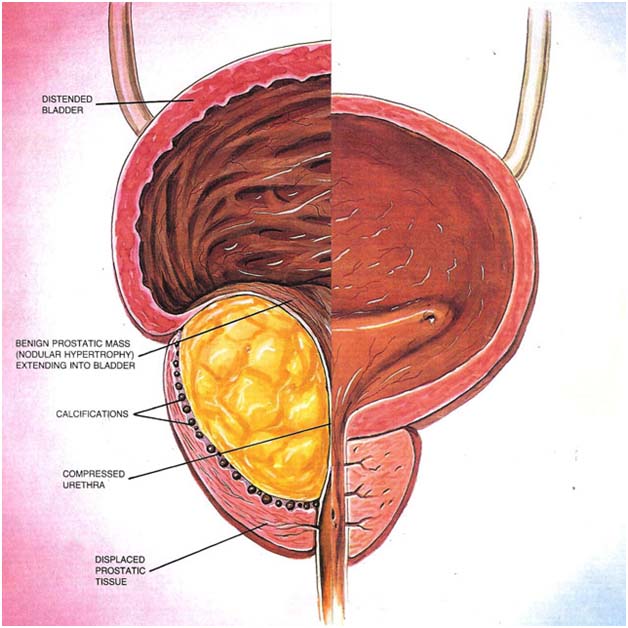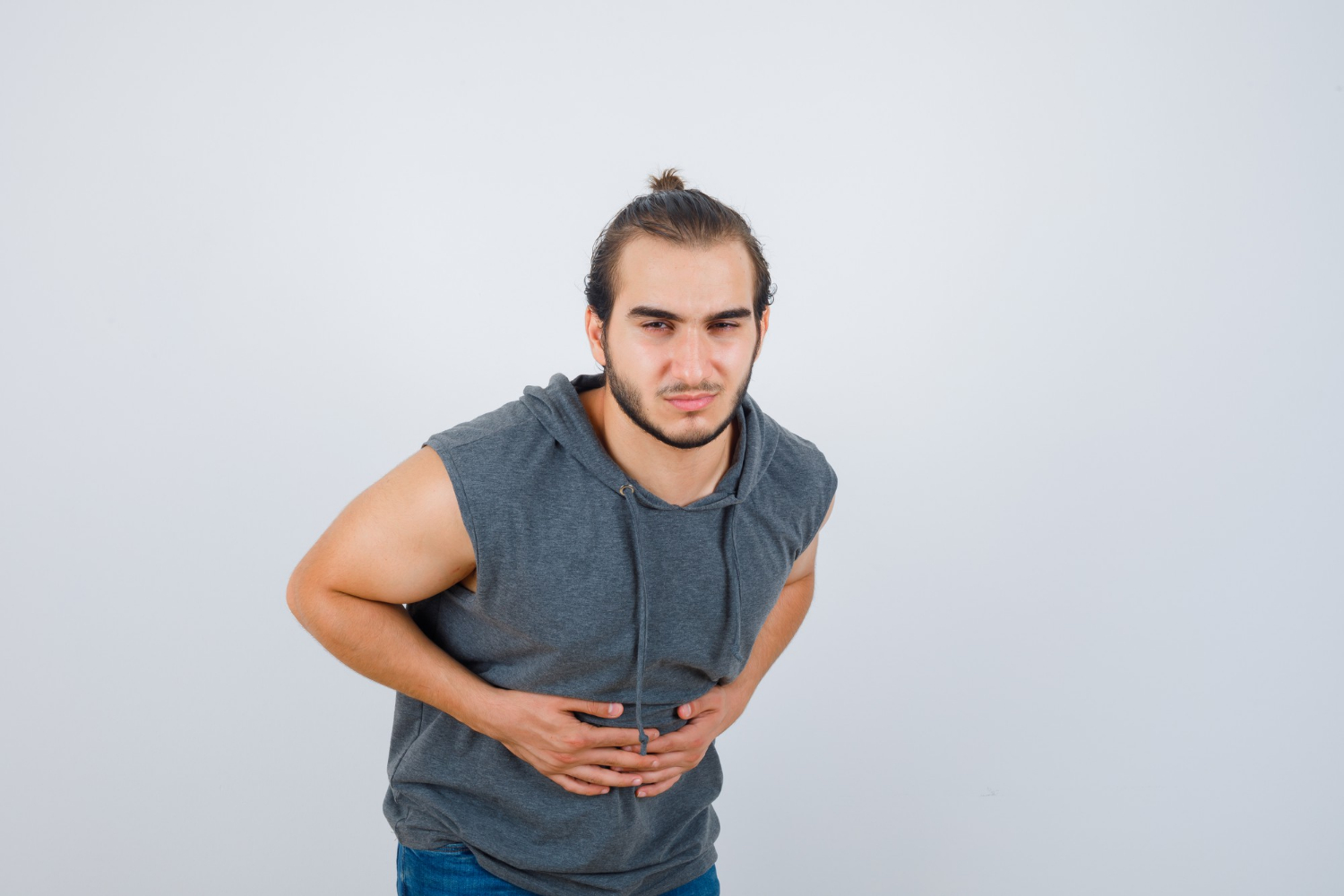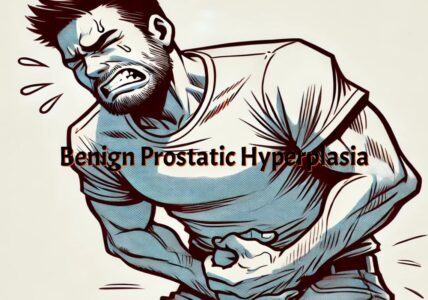Learn About Benign Prostatic Hyperplasia
Benign Prostatic Hyperplasia is the continuous enlargement of the prostate which happens in most men as they age. This is by all accounts a characteristic procedure and is exceptionally regular influencing more than 10 million American men and 1 million Australian men; half of all men are beyond 50 and 80% of men beyond 70 years old. Why the prostate begins to grow is not particularly known but rather is thought to be identified with the impact of male hormones, including testosterone, on the maturing gland. Family history of prostate enlargement can likewise build the chances of developing BPH.

After The Age Of 50 Men Have Are More Likely To Have Enlarged Prostates
After the age of fifty or so, a man’s testosterone and free testosterone levels decrease while the levels of other hormones, such as prolactin and oestradiol, increase. This creates an increase in the amount of dihydrotestosterone– a very potent form of testosterone within the prostate. This causes a hyperplasia (overproduction) of prostate cells, which ultimately results in prostate enlargement. While not cancerous, as the gland gets bigger, it tends to squeeze the urethra causing urinary problems. If it becomes too large, it obstructs the urethral canal, interfering with urination and the ability to empty the bladder completely.
Bladder diseases are connected with both prostatitis and enlarged prostate. An enlarged prostate gland is not a major issue unless urinating turns out to be to a great degree of troublesome, or backed-up urine causes bladder diseases or kidney harm. Since the bladder can’t empty totally, the kidneys also may not empty as much as they should. Undesirable weight on the kidneys can bring about serious harm and conceivable kidney failure.
The significant symptom of expansion of the prostate is the need to pass urine much more frequently, with frequency expanding over the long haul. A man may wind up rising a few times in the night to urinate. There can likewise be agony, burning and trouble in beginning and stopping pee. The presence of blood in the pee is not unprecedented.
Symptoms of Benign Prostatitis
-
Dysuria (painful urination):
Dysuria causes discomfort or burning during urination, making it difficult to pass urine. It often results from inflammation in the prostate or urinary tract. Prompt medical evaluation can help address underlying causes and provide relief.
-
Urgency, the feeling of urgently needing to urinate:
Urgency is a sudden, intense need to urinate, often without much warning. It may lead to difficulty controlling urination. This symptom can disrupt daily activities and may indicate prostate inflammation.
-
Frequent and painful urination:
Frequent urination, especially with pain, can signal prostate irritation or infection. This symptom often occurs both day and night. Managing the underlying condition can help reduce discomfort and frequency.
-
Painful ejaculation:
Painful ejaculation may result from inflammation of the prostate, affecting sexual health. This symptom can also cause discomfort during or after intercourse. Proper treatment of prostatitis often relieves this issue.
-
Lower back pain:
Prostatitis can cause persistent lower back pain, especially around the pelvis. This discomfort may extend to the hips and thighs. Addressing the prostate inflammation usually alleviates associated back pain.
-
Perennial pain (pain at the base of the scrotum and penis):
Perennial pain affects the area between the scrotum and anus, causing significant discomfort. This pain may worsen during sitting or physical activity. Managing the underlying inflammation often reduces perennial pain.
-
Chills:
Chills often accompany prostatitis, signaling the body’s response to infection. They may occur alongside fever or muscular pain. Controlling the infection can reduce this symptom.
-
Fever:
Fever is a common sign of inflammation or infection, often seen in prostatitis. It indicates the immune system’s response to fighting the infection. Seeking medical care is important to control the fever and underlying cause.
-
Muscular pain:
Muscular pain, especially in the pelvic region, can accompany prostatitis due to inflammation. This discomfort may extend to nearby muscle groups. Reducing inflammation often alleviates muscular pain associated with prostatitis.
-
General lack of energy:
A general lack of energy or fatigue often occurs with prostatitis due to infection and discomfort. This symptom can impact daily activities and productivity. Treating the underlying condition can improve energy levels and well-being.

Effective Ways to Prevent and Avoid BPH
-
Avoid antihistamines and decongestants:
These medications can worsen urinary problems by relaxing the bladder muscles. This leads to difficulty urinating and increased symptoms. Consult your doctor for alternatives that don’t affect urinary function.
-
Limit beverages before bedtime:
Reduce alcohol and caffeine intake, especially in the evening, to avoid frequent nighttime urination. These drinks can stimulate the bladder, increasing the urge to urinate. Cutting back before bed can improve sleep quality.
-
Don’t postpone urination:
Urinate as soon as you feel the need, and take your time to fully empty the bladder. Sitting down may help relax pelvic muscles. Avoid holding in waste, as it can worsen urinary symptoms.
-
Avoid exposure to very cold weather:
Cold temperatures can cause muscles in the pelvic region to tighten, leading to urinary problems. Bundle up in cold environments to prevent these effects. Staying warm helps reduce symptoms of BPH.
-
Get regular exercise:
Physical activity promotes overall prostate health and reduces BPH symptoms. However, avoid cycling, as it places pressure on the prostate. Walking is a beneficial, low-impact exercise to maintain health.
-
Use hydrotherapy:
Hydrotherapy, such as warm baths or water therapy, increases blood circulation to the prostate. Improved circulation reduces inflammation and promotes healing. Consider using hydrotherapy as part of your prostate care routine.
-
Eliminate harmful lifestyle factors:
Avoid tobacco, alcohol, caffeine, and processed foods, as they can aggravate BPH symptoms. Replace these with healthier choices like water, fruits, and vegetables. Reducing environmental toxins also supports prostate health.
-
Reduce cholesterol levels:
High cholesterol is linked to prostate problems, including BPH. Eat a heart-healthy diet to lower cholesterol and improve prostate health. Regular exercise also supports this effort.
-
Increase Zinc intake:
Zinc plays an important role in prostate health, and a deficiency may contribute to prostate enlargement. Foods like nuts, seeds, and legumes are good sources of zinc. Consider supplementation if necessary.


